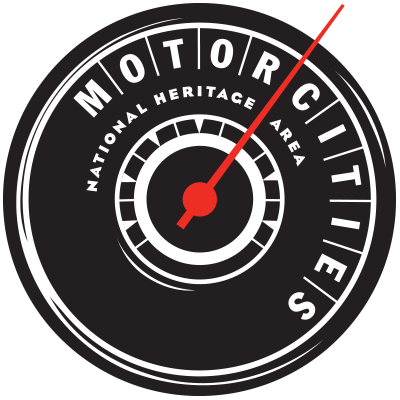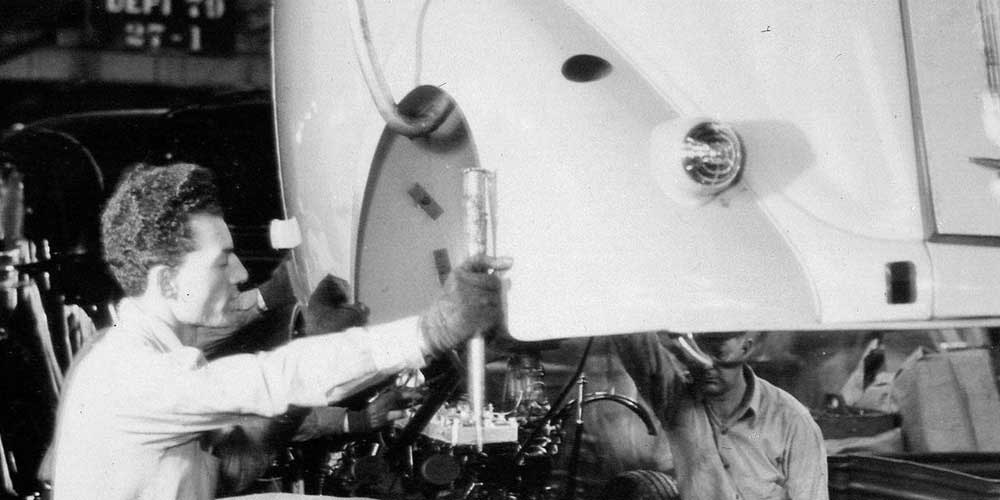By Robert Tate, Automotive Historian and Researcher
Images Courtesy of Davis Website
Published 11.24.2021
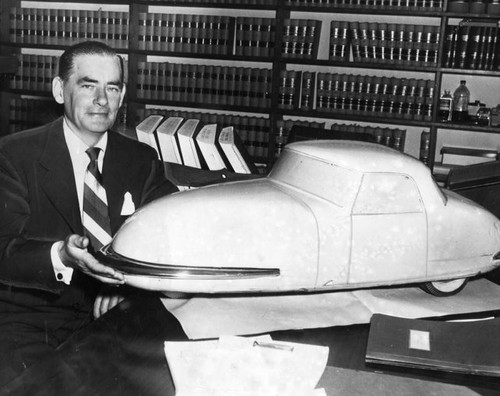 Gary Davis holding a prototype model (George O'Day)
Gary Davis holding a prototype model (George O'Day)
An often-forgotten chapter in our automotive history involved the Davis Divan, a three-wheeled vehicle that appeared after World War II. The Davis Motorcar Company operated between 1947 and 1949 and was the brainchild of Glen Gordon and Gary Davis.
The initial idea for the three-wheeled concept vehicle came from designer Frank Kurtis, along with California millionaire and racer Joel Thorne. The vehicle was designed by Kurtis and was assembled in Van Nuys, near Los Angeles, California. In the beginning, Gary Davis produced enough parts to build 100 running prototypes, however, only 17 models were actually built and road tested. A total of $1.2 million was raised to manufacture the Davis automobile.
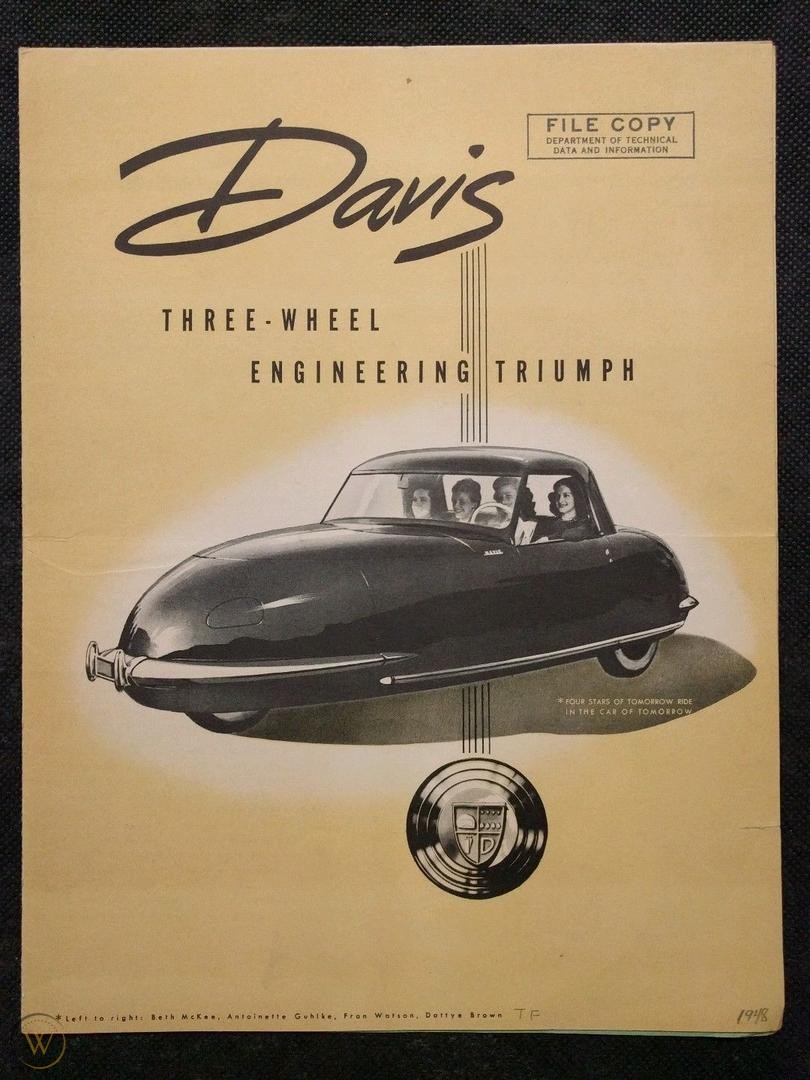 1948 Davis Motorcar Engineering Prototype model
1948 Davis Motorcar Engineering Prototype model
Advance advertising called the Davis Divan “The Car America Asked For.” With the war over, many Americans were excitedly looking to purchase new automobiles. Davis, a born promoter, saw the California roadster as a great opportunity to market his own vehicle. He knew it was unique and different from a design standpoint, and he thought the public would welcome the chance to drive themselves into the future with its aircraft-like styling.
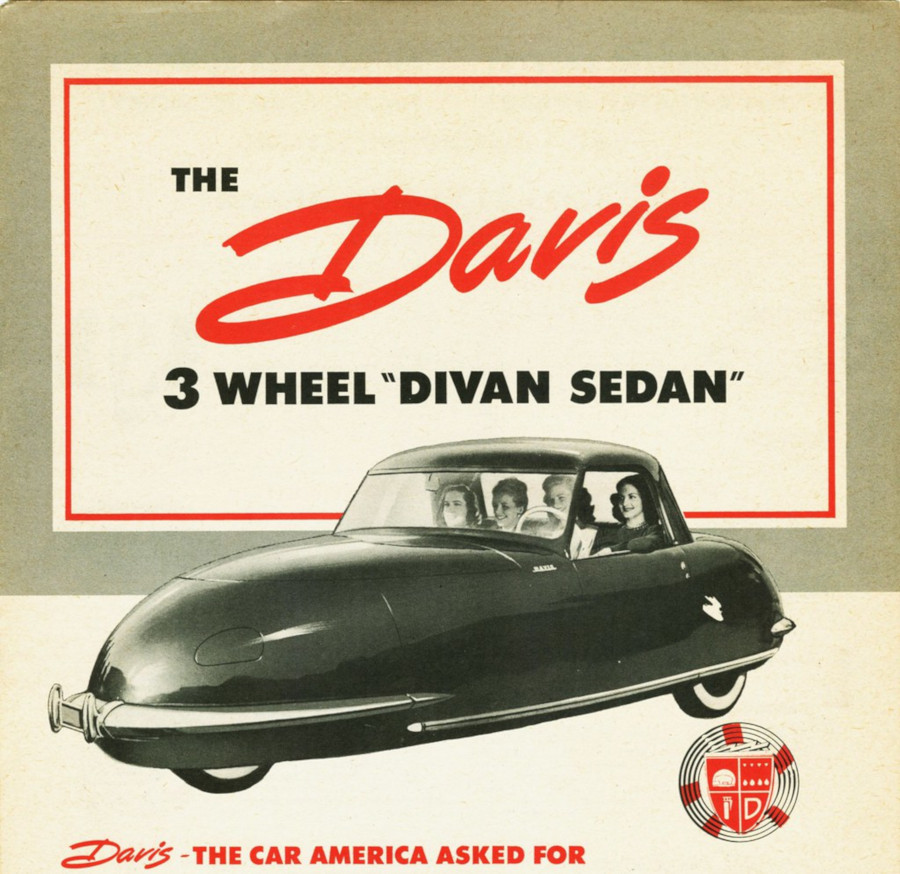 Davis Advertising and Engineering information
Davis Advertising and Engineering information
In the beginning, it was Davis who was able to convince many talented engineers from the aerospace industry to get involved with the process of building and constructing an all-new prototype automobile. His employment agreement with his staff deferred paychecks on the promise that the workers would receive a double salary payment once the Davis automobile was successfully assembled and completed.
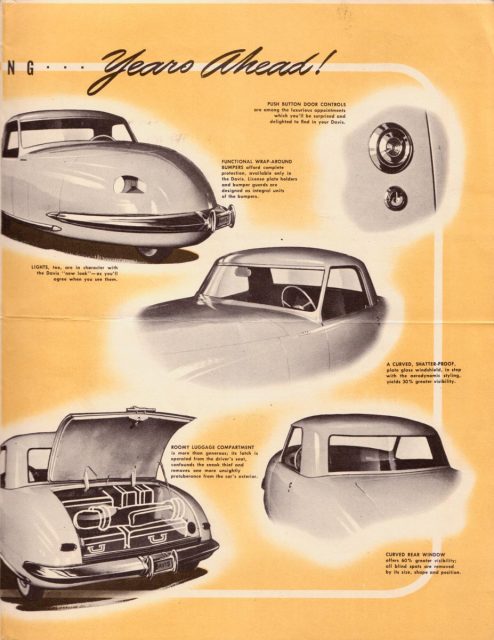 Davis advertising brochure
Davis advertising brochure
The Davis Divan model was assembled with a three-wheel set-up and included four-across seating for passengers and aluminum body panels. Another great feature was a built-in jack for each of the three wheels that was designed into the vehicle. By the touch of a switch, the driver could lift the vehicle thanks to a military surplus hydraulic cylinder. The Davis vehicle was powered by a 63 hp Continental four-cylinder engine and featured a Borg-Warner three-speed transmission.
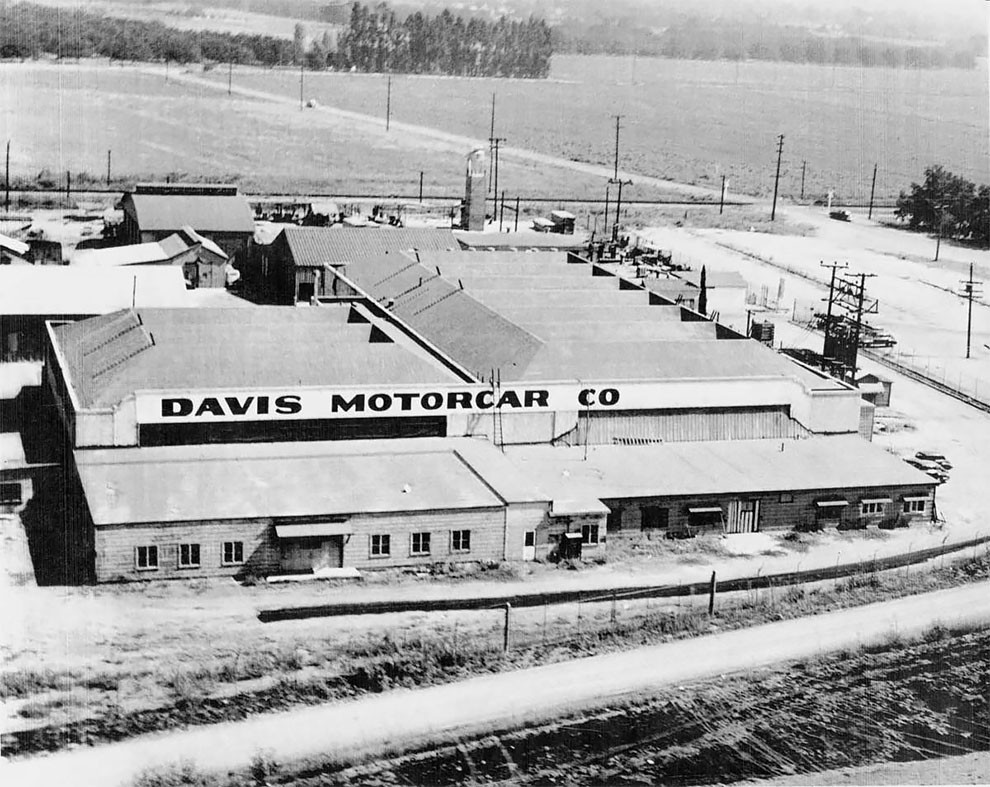 Davis Motorcar Company in Van Nuys, California
Davis Motorcar Company in Van Nuys, California
Since only 17 Davis Divan models were ever produced, many complaints began to emerge about Davis and his company by 1949. This led to a series of lawsuits, and many of the employees at the company’s factory in Van Nuys California who had worked frantically to make the product without receiving a paycheck began to quit.
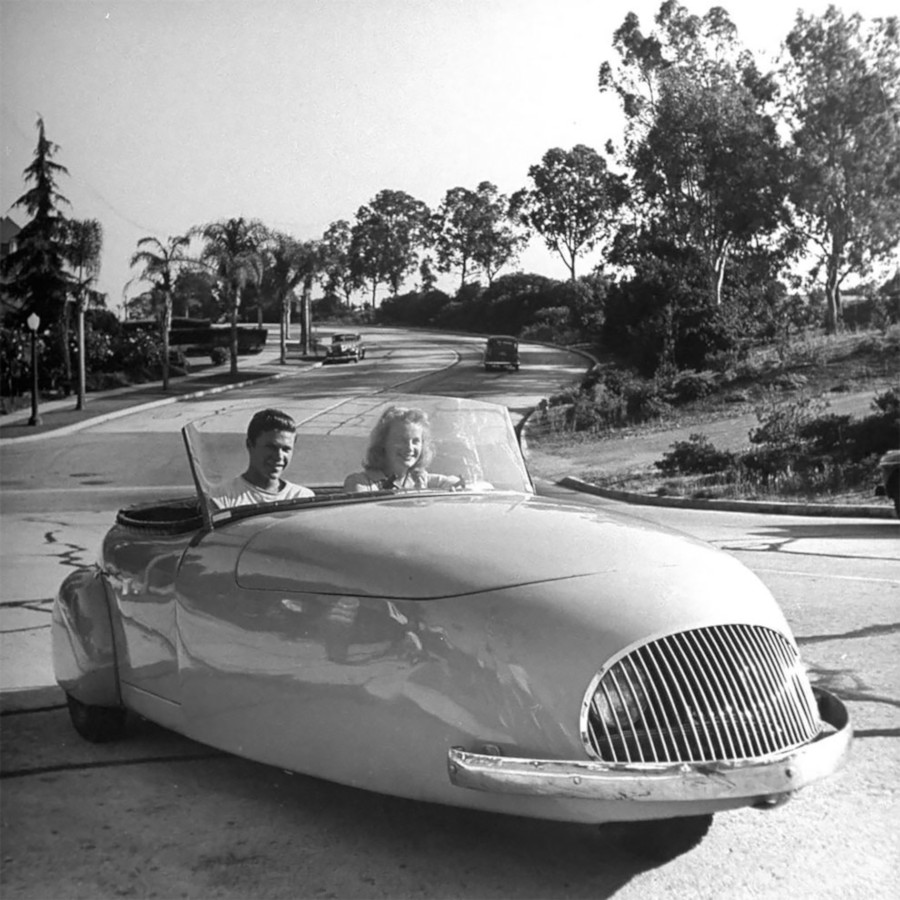 A couple drives an experimental prototype
A couple drives an experimental prototype
The network of dealers Davis had established to sell his automobile had also collapsed, since much of the money raised at the company’s startup had come from auto dealer agreements. Dealers who were losing money filed lawsuits, and Davis’ legal troubles began to kill the company. Davis was arrested on numerous charges of theft and was subsequently convicted.
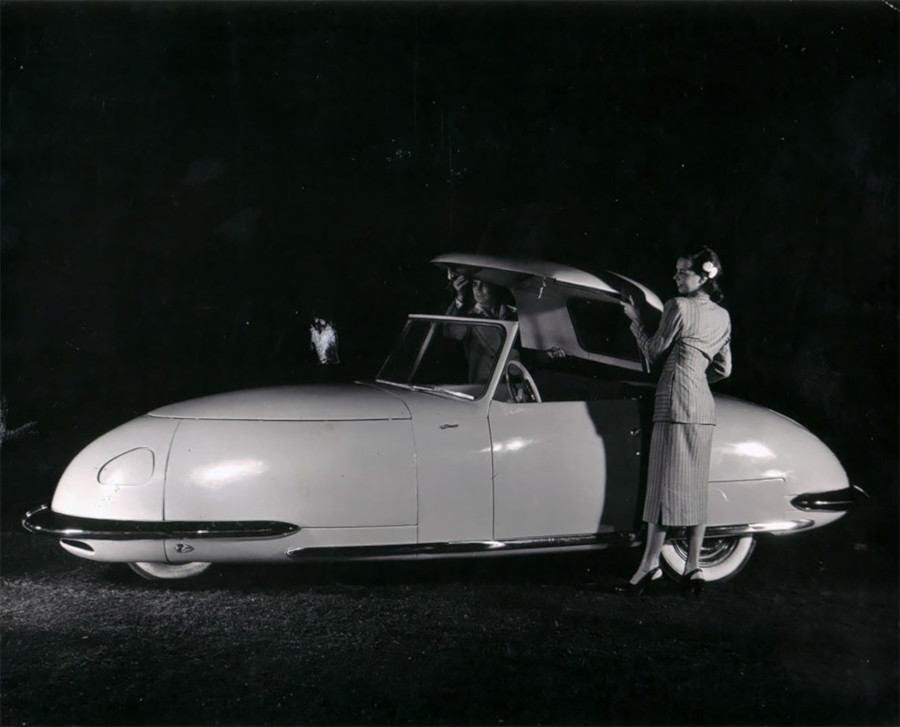 A woman lifting the top of a Davis automobile
A woman lifting the top of a Davis automobile
In conclusion, a February 1981 article in Consumer Guide said this about Gary Davis’ demise: “The convicted Davis was not sentenced to state prison. Instead, he went to a misdemeanor farm for 18 months. Afterward, he was given probation, on the stipulation he wouldn’t get back in the car business that always amused him, Davis said, because if he had really been a fraud, he would have never built a car in the first place.”
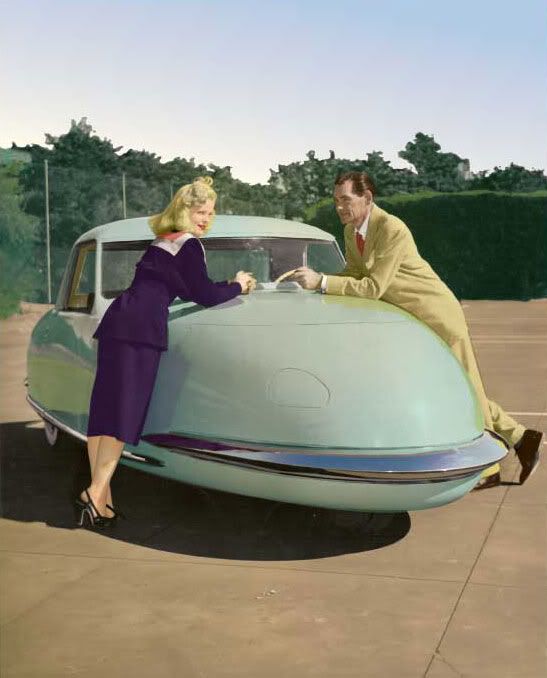 Davis advertising photo
Davis advertising photo
Bibliography
“Davis: Three Wheels Weren’t Enough.” Consumer Guide, February 1981.
Pearson, Mal. “Davis 1947-1949.” makesthatdidntmakeit.com website.
“Davis Divan Three-Wheeler: The 1940s Unique Concept Car That Lost in History.“ designyoutrust.com.

